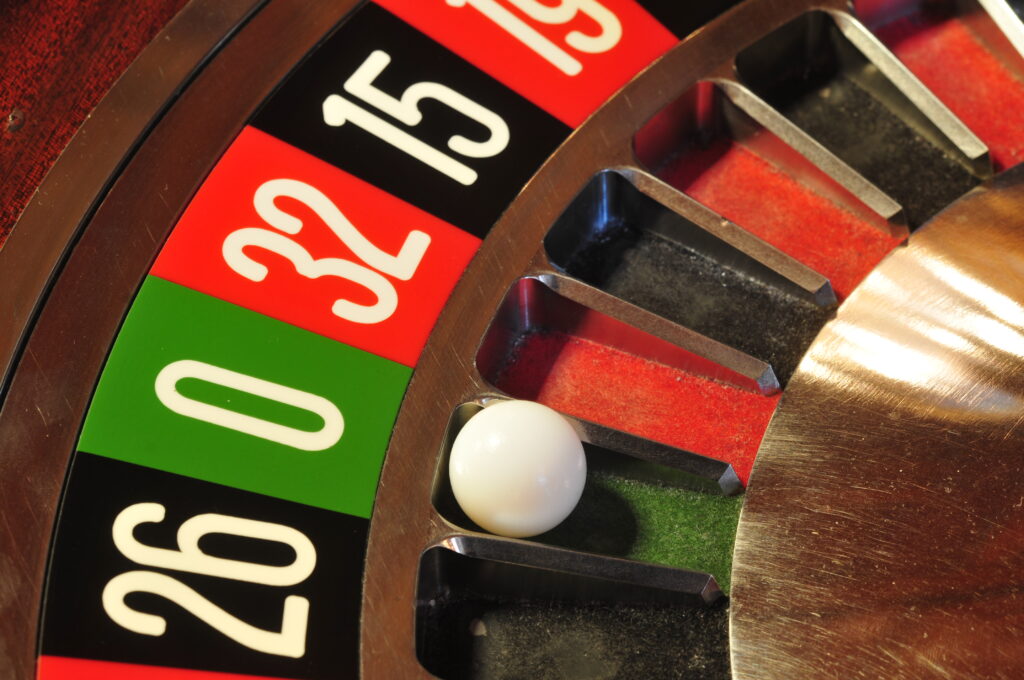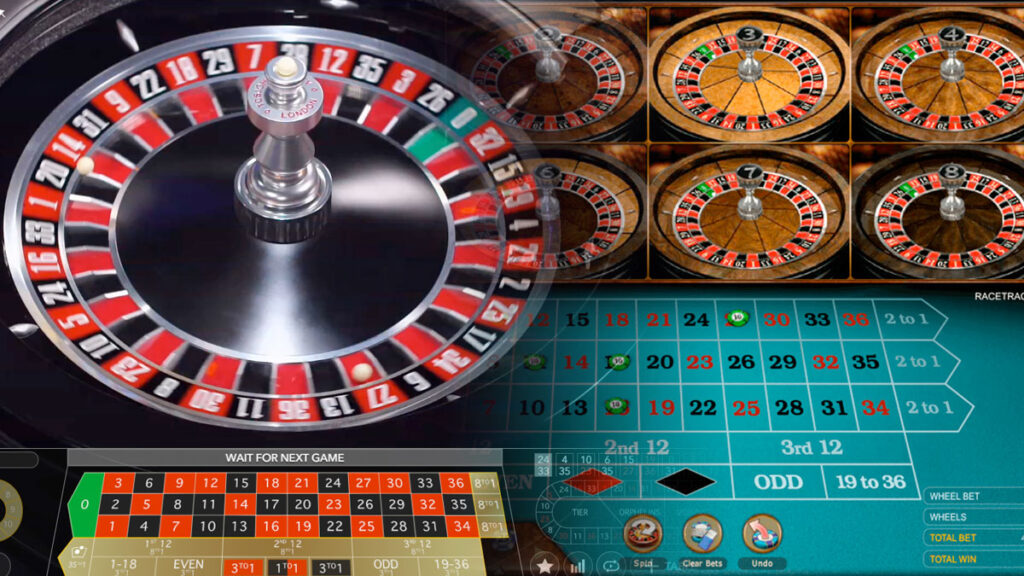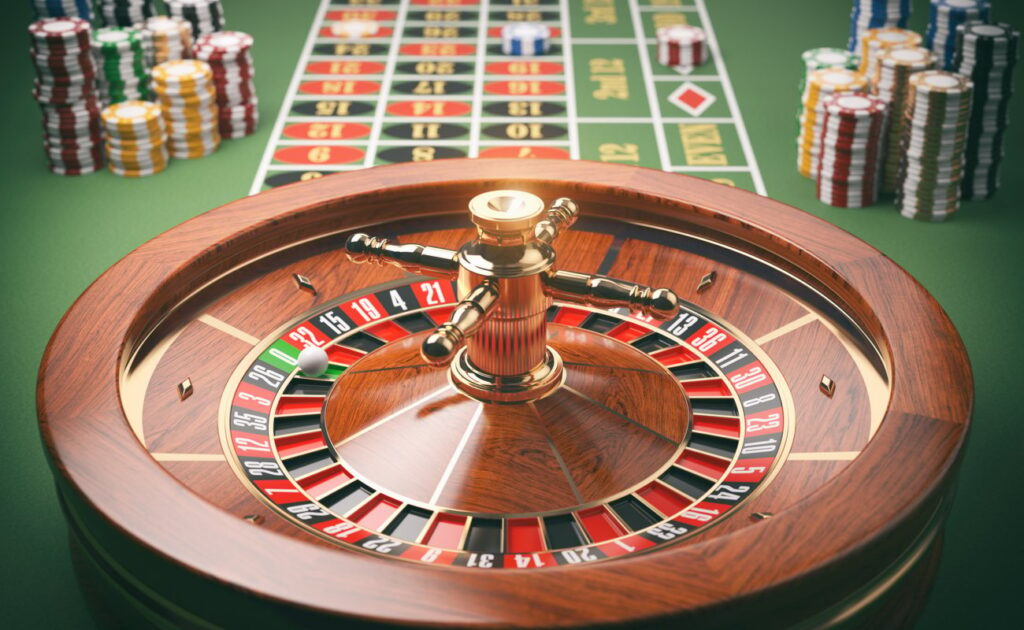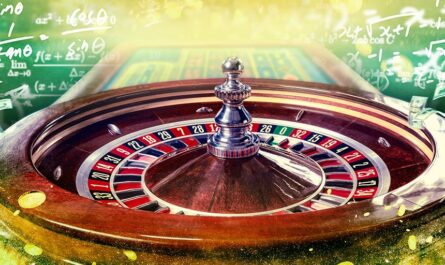Roulette is a game of chance that has captured the hearts of casino enthusiasts for centuries. While luck plays a significant role in the outcome, many players believe that there are strategies that can tip the odds in their favor.
In this comprehensive guide, we will delve into the mathematics behind roulette strategies, exploring the science of probability, betting systems, and the dynamics of the roulette wheel.
Whether you’re a seasoned player or new to the game, understanding the mathematics behind roulette strategies can enhance your gaming experience.
Page Contents
1. The Foundation: Understanding Probability in Roulette

At the core of every roulette strategy lies the concept of probability. Probability is the mathematical framework that determines the likelihood of different outcomes in a game of chance. In roulette, the key elements of probability revolve around the numbers on the wheel and the types of bets you can place.
The roulette wheel contains either 37 (in European Roulette) or 38 (in American Roulette) numbered pockets, including one or two zeros. Each spin of the wheel is an independent event, meaning that the outcome of one spin does not affect the next. This is a fundamental principle to grasp when considering roulette strategies.
When you place bets on specific numbers or groups of numbers, you are essentially making predictions about the probability of the ball landing in a particular pocket. For example, betting on a single number offers high potential payouts but has a low probability of success.
On the other hand, betting on even-money propositions like red/black or odd/even provides a higher probability of winning, albeit with lower payouts.
Understanding the role of probability in roulette is the first step toward developing effective strategies. It allows you to make informed decisions about your bets and manage your bankroll wisely.
2. The Martingale System: Doubling Down on Roulette Strategies
One of the most famous betting systems in roulette is the Martingale system. This strategy is based on the principle of doubling your bet after each loss, to recover your losses and make a profit when you eventually win. While the Martingale system can be appealing due to its simplicity, it’s essential to understand its limitations.
The Martingale system operates on the assumption that a win is inevitable and will occur before you deplete your bankroll. In theory, this approach can lead to small, consistent wins. However, in practice, there are several factors to consider.
First, table limits in casinos can restrict your ability to double your bet indefinitely. Second, a losing streak can quickly escalate your bets to high levels, risking a significant portion of your bankroll. Finally, while the Martingale system can provide short-term gains, it does not change the fundamental odds of the game, and the house edge remains constant.
3. Beyond the Martingale: Exploring Other Roulette Strategies

While the Martingale system is one of the most well-known roulette strategies, it is by no means the only approach players can employ. Numerous other strategies, such as the Fibonacci, the Labouchere, and the D’Alembert systems, offer different ways to manage your bets and potentially enhance your roulette experience.
These strategies vary in complexity and approach but share the common goal of optimizing your bets based on your goals and risk tolerance. Some focus on preserving your bankroll, while others aim for gradual, incremental gains. The key is to choose a strategy that aligns with your playing style and objectives.
4. The Role of Psychology in Roulette Strategies
While mathematics and probability play a crucial role in roulette, the human element should not be underestimated. Psychology plays a significant part in how players approach the game and make decisions. Understanding the psychological aspects of roulette strategies can help you become a more disciplined and strategic player.
One psychological factor to consider is the concept of “gambler’s fallacy.” This is the belief that past outcomes influence future results, even though each spin of the roulette wheel is an independent event.
Some players may be tempted to change their bets based on previous outcomes, thinking that if, for example, red has appeared several times in a row, black is “due” to come up. Recognizing and avoiding this fallacy is essential for making rational bets.
Another psychological challenge is managing emotions, particularly during winning and losing streaks. When on a winning streak, overconfidence can lead to riskier bets that may ultimately result in losses.
Conversely, during a losing streak, frustration and desperation can cloud judgment, causing players to chase their losses with larger bets. Developing emotional discipline and setting predefined limits on your bets can help mitigate these psychological challenges.
Furthermore, understanding your own risk tolerance and goals is essential. Are you playing roulette for entertainment, or are you seeking to make a profit? Your psychological approach should align with your objectives.
If you’re in it for fun, enjoy the game without excessive focus on strategies. If you’re aiming for profit, maintaining discipline and adhering to a well-thought-out strategy is crucial.
5. Roulette Variations and Their Impact on Strategies

Roulette comes in various forms, with European, American, and French roulette being the most common. Each variation has slightly different rules and house edges, which can influence the effectiveness of your chosen roulette strategy.
European roulette is often considered the player-friendliest variation because it has only one zero, resulting in a lower house edge compared to American roulette, which has two zeros. The reduced house edge in European roulette can be advantageous for strategies that involve betting on specific numbers or combinations.
French roulette, similar to European roulette, also has one zero but offers the “La Partage” rule. This rule allows players to receive half of their even-money bets back if the ball lands on zero. While this rule doesn’t impact all bets, it can be a beneficial factor to consider when selecting your strategy.
Understanding the nuances of these roulette variations and how they affect the odds can inform your choice of strategy. Some strategies may be better suited to specific roulette versions, and being aware of these distinctions can enhance your overall gaming experience.
6. The Future of Roulette Strategies: Technology and Innovation
As technology continues to advance, the landscape of roulette strategies is evolving. The integration of artificial intelligence (AI) and data analysis tools is changing the way players approach the game. AI-powered algorithms can analyze vast amounts of data to identify patterns and trends, potentially providing players with insights into betting strategies.
Furthermore, the advent of online and mobile roulette has expanded the possibilities for strategies. Players can access a wide range of resources, including strategy guides, simulations, and real-time statistics, to inform their betting decisions. Mobile apps and online platforms also offer a convenient environment for testing and implementing various strategies.
The future of roulette strategies is likely to be shaped by a combination of mathematics, psychology, and technology. Players who embrace these elements and adapt to the changing landscape may find new and innovative ways to approach the game, making roulette an ever-evolving and dynamic casino experience.
Conclusion: Embrace the Science of Roulette Strategies

As you navigate the roulette world, remember that mathematics and probability are your allies. Understanding the intricacies of roulette strategies empowers you to make informed decisions, manage your bets effectively, and confidently enjoy the game.
While no strategy can guarantee consistent wins in a game of chance, the journey of exploring and implementing these strategies adds depth and excitement to your roulette experience. So, step up to the wheel, embrace the science of roulette strategies, and let the game unfold before you with newfound insight.






